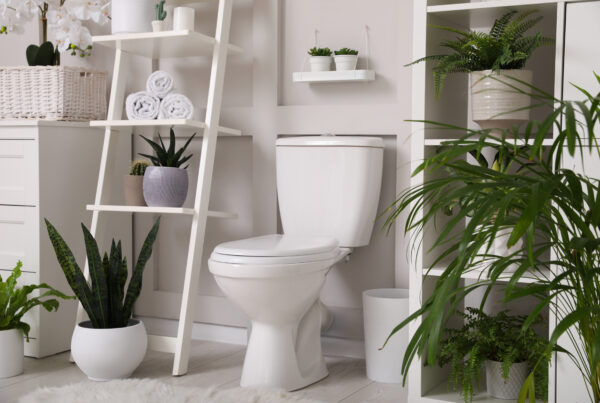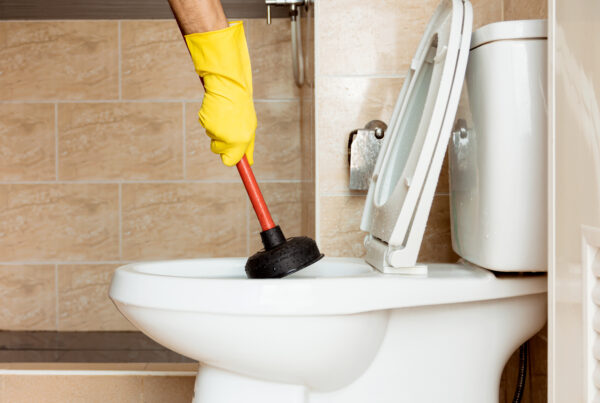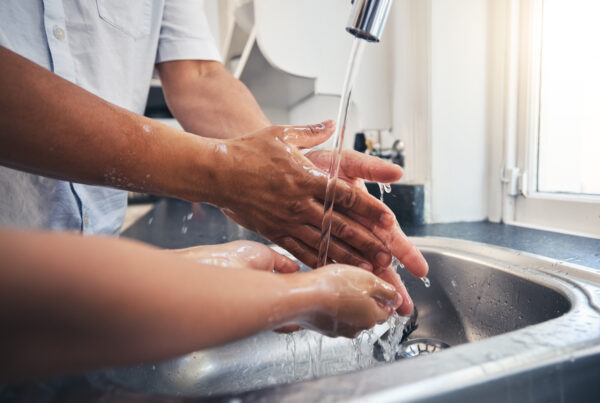When a pipe breaks in your home, you may be wondering what went wrong. It can seem random, but why do pipes break in the first place?
We’ve ‘broken’ down the causes of pipe breaks and what you can do to prevent them in your home.
What Causes Pipes to Break?
- Minimal or poor maintenance of your plumbing system increases the likelihood of a broken pipe.
- The incorrect disposal of food and hygiene products down your drains can lead to clogs, corrosion, and eventually a broken pipe.
- Tree roots are also a major contributor to pipe breaks, especially in your sewer and water lines. The roots seek out water, and some can be extremely aggressive about infiltrating your pipes.
- Extreme weather causes older or no longer up to code pipes to expand and contract, causing small cracks and burst pipes. Code complice and product testing have come a long way in the last few years alone.
- High water pressure – The normal water pressure (PSI) coming into your home should be 40-60 PSI. Just like high blood pressure is bad for your organs, high water pressure stresses your pipes and appliances.
- Other factors can be age and natural corrosion from the soil.
How Do You Prevent Pipe Damage?
1. Invest in Preventative Plumbing Maintenance
Annual plumbing inspections are recommended to detect hidden leaks and ensure everything is working as efficiently as it should. When you have your plumbing system maintained by a licensed plumber, the risk of broken pipes drastically decreases, and you avoid many of the problems that we described.
2. Watch What You Toss Down the Drain
It’s important to be careful about what you put down your pipes. Common items that cause trouble include:
- Coffee grinds
- Eggshells
- Stringy vegetables
- Rice/Pasta
- Meat/Bones
- Oil or grease
3. Prevent Pipe Corrosion
Avoiding tossing items down the drain that cause corrosion will also help reduce the chances of a broken pipe. Harsh chemicals, including chemical drain cleaners, should not be dumped down the drain as they will accelerate corrosion on your pipes, leading to a leak.
4. Prevent Tree Root Intrusion
Regarding roots, you can avoid root intrusions, by planting trees and other foliage far from your pipelines. Call ABC Plumbing a licensed plumber if you need help locating your pipes.
5. Protect Pipes From Freezing
Follow weather reports and the proper protocols when there is a freeze on the way. Some recommendations include:
- Insulating outdoor spigots
- Letting water faucets drip
- Leave cabinets open under sinks warm air can reach pipes
6. Check the Water Pressure
Have your water pressure checked – if it is too high, consider a water pressure regulator.
7. Hire ABC Plumbing
Think twice before having an unlicensed (handyman, friend, or family) perform plumbing or drain repairs. There is a lot that could go wrong and quickly become very costly. Besides having the know-how to avoid these catastrophes, licensed pros also have warranties and liability insurance!





